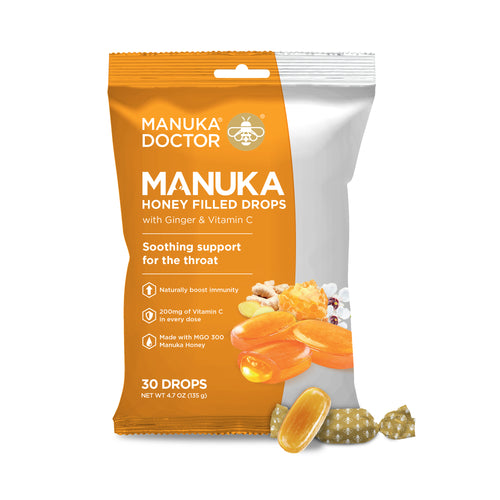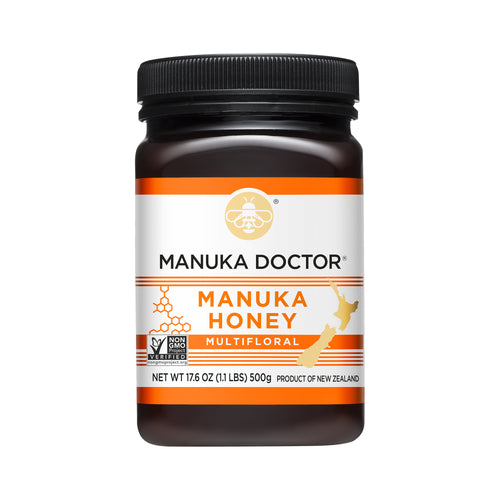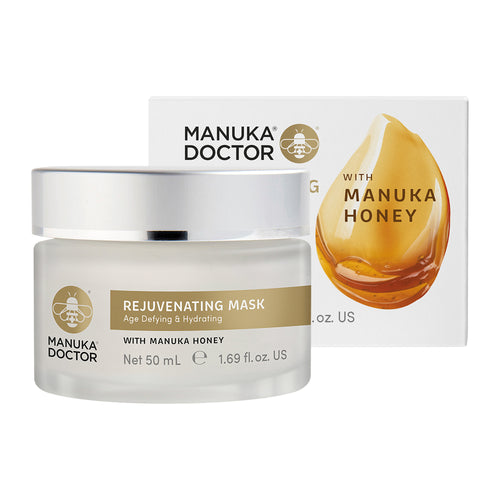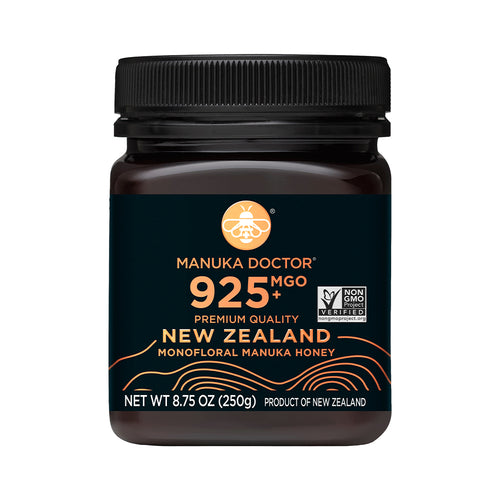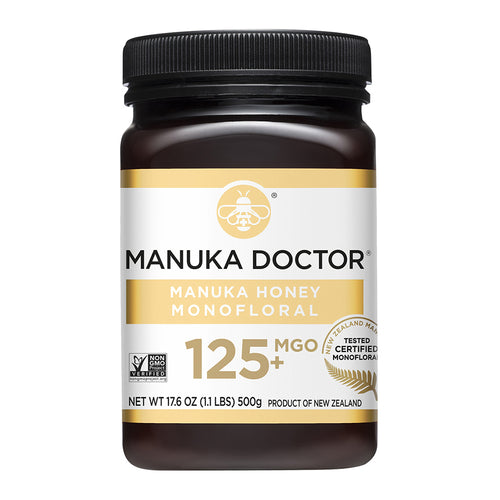Read Time: 3 minutes
Summary:
Manuka honey is often praised for its wellness benefits—and some of the science backs it up. Research shows it has antimicrobial, anti-inflammatory, and antioxidant properties that may support immunity, gut health, and wound healing. While more studies are needed to confirm its full potential, its clinical use in treating wounds is already well-established. Whether stirred into tea or used in skincare, Manuka honey remains a sweet and promising addition to a wellness routine.
Manuka Honey: What the Science Says
You might have heard a lot about the wellness magic of Manuka honey. But does it really make that much difference to your wellbeing? Here, we’ll delve into the science so far to bring you an honest analysis of this fabled honey – and separate fact from fiction.

The claim: Manuka honey can boost your immune system
The science: A 2016 review of literature found that manuka honey has antimicrobial, anti-inflammatory and antioxidant properties, and that preliminary research has suggested it could have antiviral properties, potentially making it useful for protecting your body against viruses, such as colds, flu and Covid.[1] Put together, these qualities may mean it has potential to shore up your immune system.
Try a new Manuka recipe today!
The takeaway: We need more evidence to say with certainty that Manuka honey has a role in supporting immune health – as with many natural remedies, there’s insufficient research at the moment. But lots of Manuka Doctor’s customers swear by it for easing coughs and colds. Try stirring a spoonful into hot lemon and water for a drink to soothe a sore throat.
The claim: Manuka honey is good for your gut
The science: Manuka honey has shown early promise for boosting gut health. It’s been found to inhibit the growth of C.difficile, a bacteria that commonly causes food poisoning, and could be a potential treatment for it.[2] Studies suggest it may also help treat stomach ulcers.[3] Like other honeys, Manuka may have prebiotic benefits, helping to encourage the growth of good bacteria in the gut,[4] known to be important for digestion and overall wellbeing - but some research suggests Manuka may go a bit further and have a particular ability to influence gut bacteria.[5]
The takeaway: Again, more research is needed to understand exactly how Manuka honey helps, and how much you’d have to take for the benefits. But if a daily spoonful of delicious honey might boost your gut bugs, what’s not to love about that?
The claim: Manuka honey can heal wounds
The science: This is one of the most established areas of research. Honey was used by ancient cultures to treat wounds but fell out of favour in the last century, with the advent of antibiotics. But now Manuka honey is being put to clinical use in wound-healing. It’s been shown to kill bacteria – even antibiotic-resistant bacteria – and has a number of other functions, including lowering a wound’s pH and dampening inflammation. This makes it particularly important for stubborn wounds, such as sores related to type 2 diabetes, and burns. In hospitals, it’s often applied in dressings.[6] A caveat, though – the type of Manuka honey used in clinical dressings is different from what’s in your jar in the kitchen cupboard. Specialist medical honey companies collect batches of honey and pool them together, then treat the honey to ensure it’s completely sterile before it’s used in dressings.
The takeaway: Manuka honey’s an established treatment for wounds in hospitals. But never be tempted to try to apply it to a wound at home because clinical Manuka honey has been produced in a very specific way. Generally, though, Manuka honey has properties that may make it an all-round soother for minor skin niggles and help you to get a youthful glow. Why not have a look at Manuka Doctor’s honey-rich skincare products?

We still need more research to tell us exactly why and how Manuka honey helps various conditions. And it may be supportive in other areas that haven’t yet been explored. For now, keep indulging in the delicious golden goodness of Manuka in whatever way you enjoy it.
Read more: Is prevention better than cure: Manuka Honey, immune system and more
Sources:
[1] Carter DA, Blair S, Cocketin NN et al. Therapeutic manuka honey: no longer so alternative. Front Microbiol. 2016; 7: 569.
[2] Hammond EN and Donker ES. Antibacterial effect of Manuka honey on C.difficile. BMC Res Notes. 2013 May 7;6:188
[3] Carter DA, Blair S, Cocketin NN et al. Therapeutic manuka honey: no longer so alternative. Front Microbiol. 2016; 7: 569.
[4] Mohan A et al. Effect of honey in improving the gut microbial balance. Food Quality and Safety, Volume 1, Issue 2, 1 May 2017, Pages 107–115,
[5] Rosendale DI et al. High‐throughput microbial bioassays to screen potential New Zealand functional food ingredients intended to manage the growth of probiotic and pathogenic gut bacteria
[6] Minden-Berkenmeier BA and Bowlin GlL Honey-based templates in wound healing and tissue engineering. Bioengineering (Basel). 2018 Jun; 5(2): 46.
